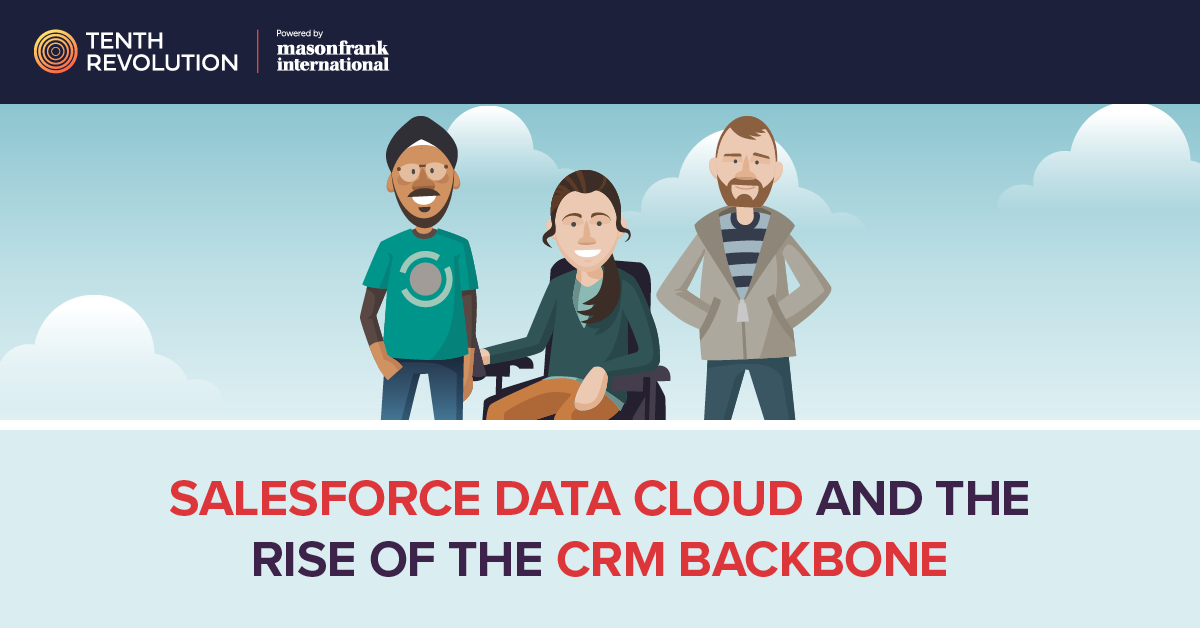
For decades, CRM platforms were treated as front-office utilities: databases to store contacts, log interactions, and track opportunities.
That model delivered value in its time, but the modern enterprise is dealing with challenges far more complex than a pipeline report. Customers expect personalization in the moment. Executives expect analytics in real time. AI models need a trustworthy data foundation to generate accurate recommendations. Traditional CRM, disconnected from enterprise data strategies, is no longer enough.
Salesforce Data Cloud is redefining what CRM means for global businesses. With zero-copy and zero-ETL federation into warehouse and lakehouse platforms, it is becoming the data backbone on which customer engagement now depends. This change is not a marginal upgrade. It is an architectural shift in how enterprises approach data, trust, and growth.
The new rules for customer engagement
1. Data must be live, not lagging
Batch ETL processes that move data overnight or weekly are no longer viable. When a customer abandons a shopping cart, engages with a service chatbot, or updates their payment details, those signals must be available instantly. Every marketing campaign, service resolution, or AI-generated recommendation needs to be informed by data that is current to the second. With zero-copy access to warehouses like Snowflake and lakehouses like Databricks, Salesforce Data Cloud removes latency and brings real-time context directly into CRM.
The technology makes live data possible, but the right expertise is needed to implement it. Mason Frank connects businesses with Salesforce professionals who specialize in Data Cloud and zero-copy integrations, ensuring adoption is both fast and secure.
2. Compliance must travel with the customer
Regulations such as GDPR, HIPAA, and industry-specific frameworks are increasing in scope and complexity. Customer consent preferences and data residency rules cannot be manually patched into workflows. They must be built into the fabric of every interaction. Salesforce Data Cloud enforces compliance at the source, ensuring privacy rules are preserved when data is activated in Salesforce. This builds customer trust while reducing regulatory risk for enterprises.
3. AI must be grounded in trusted context
Generative AI copilots and autonomous agents only succeed when they act on accurate and governed data. Without grounding, AI risks producing irrelevant or misleading responses that undermine credibility. Salesforce Data Cloud creates consent-aware profiles that unify behavioral, transactional, and operational data. This becomes the foundation for Einstein Copilot, Agentforce, and other AI systems, ensuring their recommendations are not just clever but reliable and compliant.
AI copilots can only succeed if they are supported by skilled professionals who know how to design, train, and scale these systems. Mason Frank provides Salesforce talent with Data Cloud and AI expertise, helping enterprises embed AI securely into business-critical workflows.
4. CRM must integrate with the enterprise backbone
CRM can no longer live as a silo. Customer-facing systems must be deeply connected to the enterprise data estate. By federating with Snowflake, Databricks, and similar platforms, Salesforce Data Cloud turns CRM into the front end of the enterprise data backbone. Sales, service, marketing, and commerce teams operate from the same live foundation that powers analytics and operations, creating a seamless loop between insight and engagement.
What leaders should expect
This shift has strategic consequences for executives. When Salesforce Data Cloud acts as the backbone of CRM:
Campaigns can launch in days rather than quarters because data is accessible without lengthy integration projects.
Investments in warehouses and lakehouses finally deliver front-line value to sales and marketing teams.
Customer trust increases as privacy preferences are enforced consistently across every channel.
AI initiatives move from pilot to production, grounded in live, governed data that executives can rely on.
For leaders, this is an opportunity to bridge the historic gap between the back office and the front office. Salesforce Data Cloud connects the systems that manage information with the systems that drive customer experience, creating an enterprise-wide cycle of value.
A call to action for business leaders
The businesses that win in this new environment will be those that act decisively. They will treat Salesforce Data Cloud not as a Salesforce add-on but as the strategic foundation of their customer engagement strategy. That means aligning IT and business leadership around a shared data vision, integrating CRM into the wider enterprise data estate, and ensuring the right governance and talent are in place.


